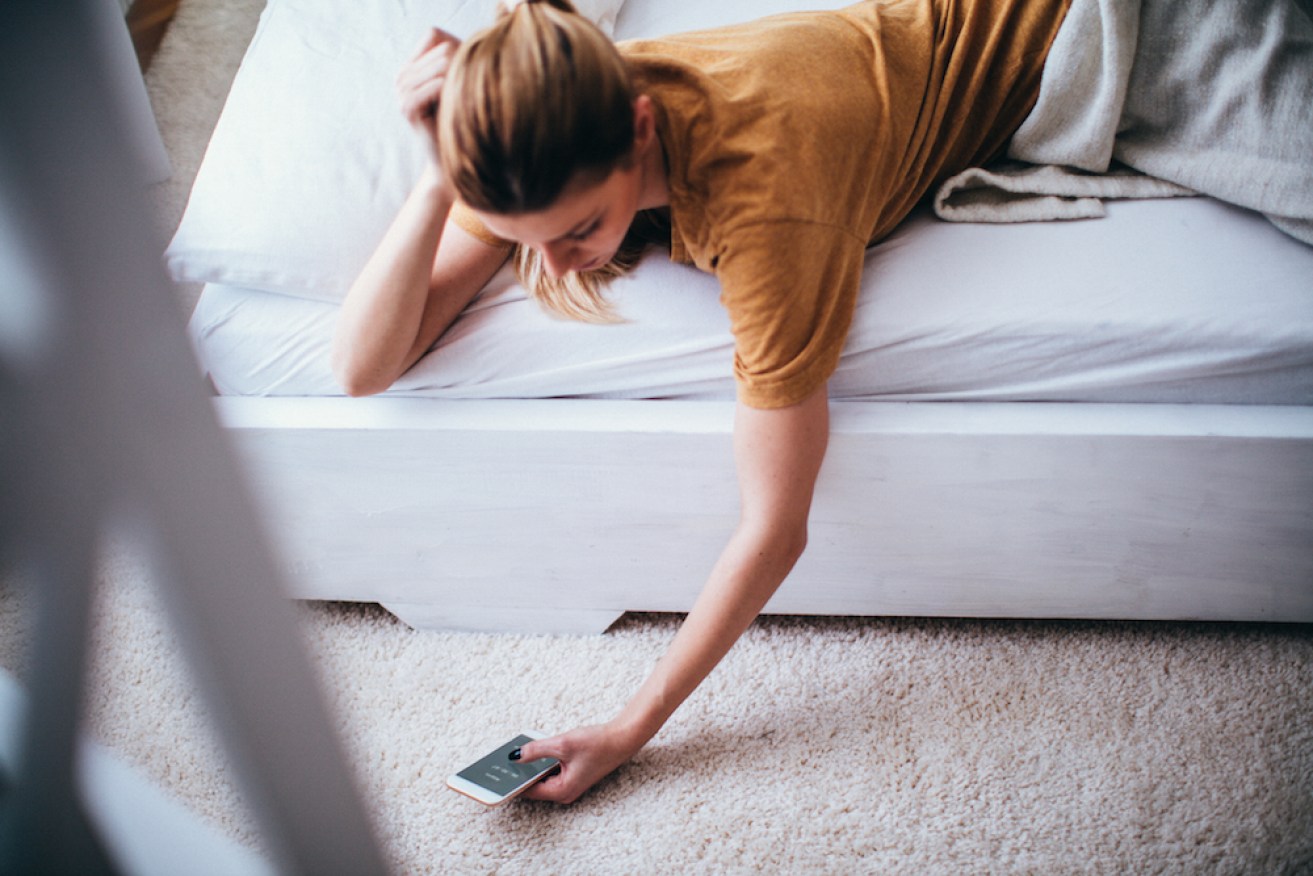How to relax: a step-by-step guide


Who needs anything more than a T-shirt when COVID has made homebodies of us all. Photo: Getty
You finally have some downtime. But, with life so under the pump, doing ‘nothing’ feels abnormal and stresses you out even more. In short, you suck at relaxing.
Inability to switch off after work is on the rise, says author of The Off Switch, Dr Mark Cropley. The professor of Health Psychology at the University of Surrey says about 70 per cent of the working population suffer from the problem.
Electricity, the invasion of technology into our homes and the changing nature of work, all play a role. “People feel they need to work more to keep their jobs, so work plays on the mind more.”
Those who can’t switch off produce more cortisol (the stress hormone) and have a greater risk of cardiovascular disease, unhealthy eating habits and disrupted sleep, Dr Cropley says.
“The body needs time to relax and recharge. Let the parasympathetic nervous system take over a little bit and all the things go down to baseline,” Dr Cropley explains.
Paradoxically, the most relaxing activities require active engagement and attention. Simply ‘vegging out’ actually sabotages our goal.
“If you haven’t got anything planned, your brain, because it never switches off, always returns to the thing that’s been most on your mind. Before too long, you start thinking about work,” Dr Cropley explains.
“You need to find something to fill the void.”
Is there an ideal activity that works?
“It’s very unique for the person,” he says. Hobbies, physical exercise, socialising, relaxing therapies like massage, and active relaxation techniques (like mindfulness) are the most effective.
“Ironically, we’ve found children are very good for unwinding from work. You have to engage with them. By doing that, you’re not thinking about work.”
One of our most popular strategies, television, isn’t so effective. “Mostly people just sit there passively and watch. So this doesn’t stop the brain from wandering.”
Another problem is that we tend to confuse mental and physical tiredness.
“When the brain is tired the body becomes tired as well. If you force yourself off the sofa and do some exercise suddenly you have more vigour.” In other words, exercising the body can relax the mind.
Admittedly, switching modes after an adrenaline-pumped day can be difficult. “At work it’s like you’re doing 120km an hour then, suddenly, you come into a 20km-an-hour speed limit,” he says.
So, you have some downtime? Dr Cropley suggests the following simple, evidence-based, unwinding rituals.
At work
- At the end of the day, perform the same ritual, such as cleaning your mug, clearing your workstation or watering plants. These simple behaviours signal to the brain that you’re ready to switch off from work.
- Have a dedicated lunch and tea break.
- On the way home, listen to music or read. Ideally, cycle or walk home.
- Don’t take on too much. Those who do tend to think about work a lot.
- If a project is large, set yourself targets you can cross off. People tend to think more about unfinished tasks.
At home
- Plan leisure time that distracts the mind.
- Hide everything to do with work – laptops, phones, email, notepads – and change out of your work clothes.
- Find somewhere by yourself just to be, and breathe slowly (at least six minutes changes heart rate variability).
- Make time for a relaxing, uninterrupted dinner.
- Plan and take regular holidays and mini breaks.
Keep habits
- Go to bed and get up at the same time.
- Exercise, but not after 7.30pm. Exercising too late over-stimulates the brain.
- Avoid caffeine and sugar in the evening.
- Lose the guilt. One of the biggest barriers to relaxation is that people think it’s selfish.








